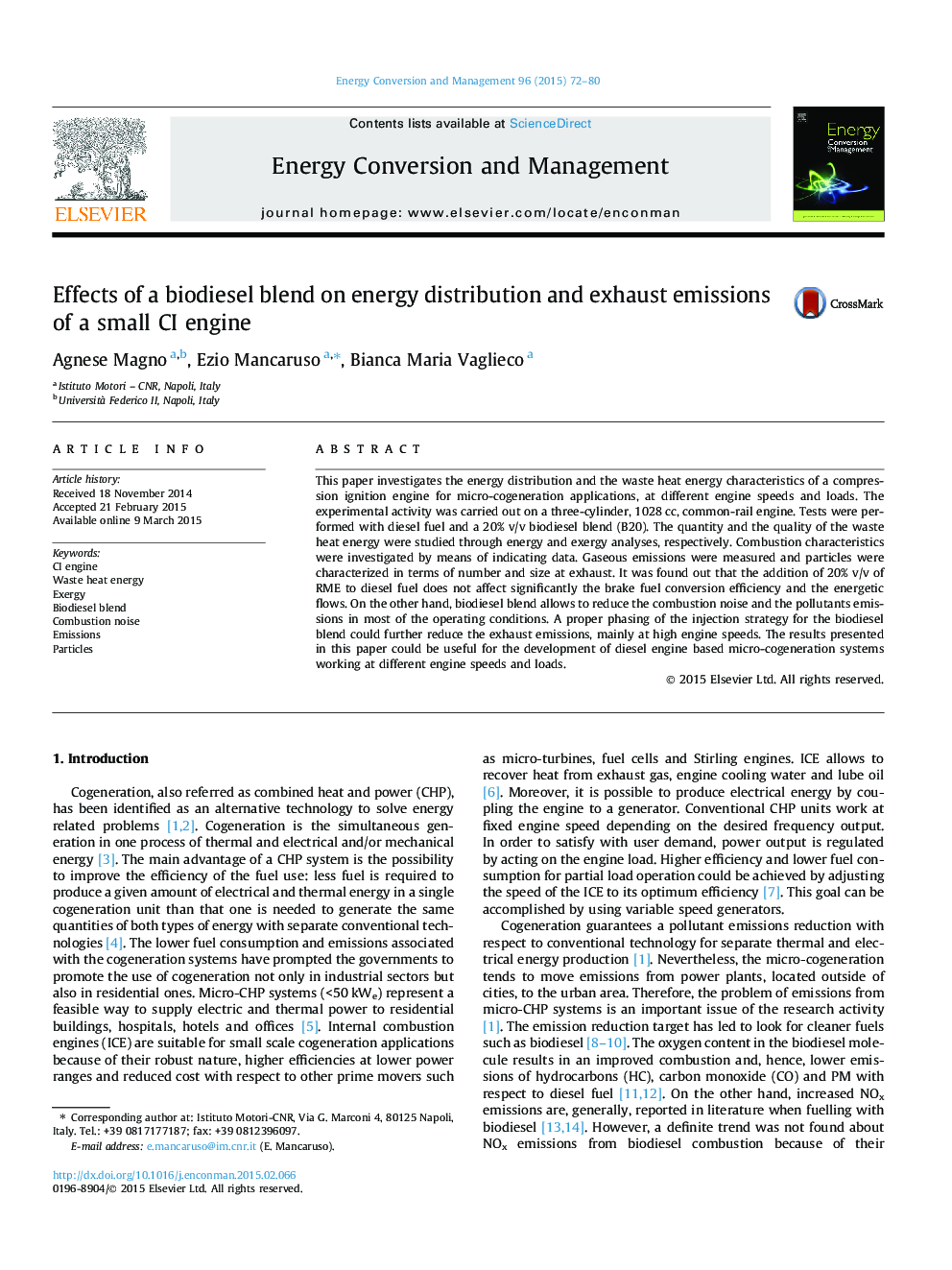| Article ID | Journal | Published Year | Pages | File Type |
|---|---|---|---|---|
| 763598 | Energy Conversion and Management | 2015 | 9 Pages |
•B20 does not affect the brake thermal efficiency and the engine energetic flows with respect to diesel fuel.•B20 is characterized by lower combustion noise than diesel fuel.•B20 emits lower CO, HC and PM in the most of the operating conditions.•A definite trend of NOx emissions for B20 with respect to diesel fuel was not found.•B20 emits more nuclei particles than diesel fuel.
This paper investigates the energy distribution and the waste heat energy characteristics of a compression ignition engine for micro-cogeneration applications, at different engine speeds and loads. The experimental activity was carried out on a three-cylinder, 1028 cc, common-rail engine. Tests were performed with diesel fuel and a 20% v/v biodiesel blend (B20). The quantity and the quality of the waste heat energy were studied through energy and exergy analyses, respectively. Combustion characteristics were investigated by means of indicating data. Gaseous emissions were measured and particles were characterized in terms of number and size at exhaust. It was found out that the addition of 20% v/v of RME to diesel fuel does not affect significantly the brake fuel conversion efficiency and the energetic flows. On the other hand, biodiesel blend allows to reduce the combustion noise and the pollutants emissions in most of the operating conditions. A proper phasing of the injection strategy for the biodiesel blend could further reduce the exhaust emissions, mainly at high engine speeds. The results presented in this paper could be useful for the development of diesel engine based micro-cogeneration systems working at different engine speeds and loads.
